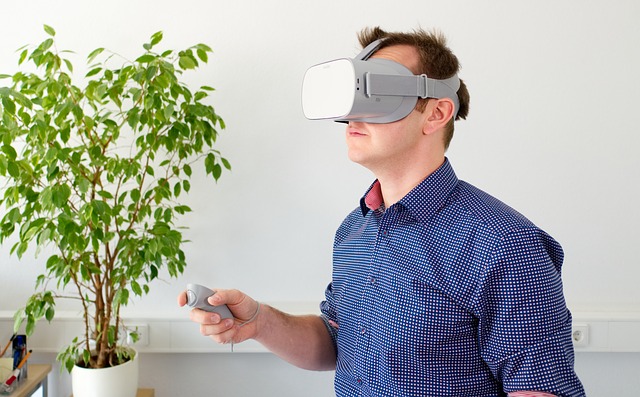The metaverse will not replace real life

METAVERSE - But can we not understand that virtual reality will not replace real life? The Metaverse reproduces everything that is present in real life but does not exclude it, indeed makes it more accessible.
The origin of the Metaverse
In the world of social media and technology in general, a very topical and hot topic is that of the "Metaverso". It is a project that Mark Zuckerberg wants to realize in the immediate future, but a concept that exists in our culture since the early nineties.
The authorship of the term metaverse is attributed to Neal Stephenson, who uses the term in his 1992 science fiction novel Snow Crash. The novel is set in a parallel world where people can interact with each other and with the surrounding space through 3D avatars representing themselves. Within this parallel world, represented as a black sphere, every person with their avatar is able to build everything in 3D, from homes, parks, offices, to shops. Not only that, within the Metaverse has the possibility of living a life completely identical to the real one.
The Metaverse today
Since the 1990s, the term has been used several times, especially in the video game industry such as Fortnite, but it was Mark Zuckerberg who gave a more real perspective to the virtual world. The CEO of Facebook said he wants to give life to "an embodied internet, in which instead of just displaying content, you’re in it". The idea is to have access to a virtual place where, however, you can experience all the opportunities that arise in real life, as if we were there physically. To interact on our behalf will be an avatar, or in the most updated version, our own projection holographic. What it does in essence is to bring together in one place more technologies that affect the email industry, video conferencing, blockchain, video games, streaming, 3D immersive technology. In the imagination of its modern creator the metaverse represents the "big step" of the digital revolution.
In Zuckerberg’s project the metaverse will be "a vision that includes many companies". Everyone can live this place, but no one will own it. Accessibility and interoperability will be the keywords that guide the metaverse. Everyone can create, develop content and be present including museums, libraries, squares, gardens, shops.
Many companies have started to invest
In order to make the experience even more immersive, Zuckerberg in 2014 purchased VR device manufacturer Oculus for $2 billion. Doing so wants to try over time to make the cost of these devices more affordable and affordable. In addition to that, the news is that Facebook is investing 5 billion a year to create all the technologies needed for this project. But for its CEO, revenues, once the metaverse is online, will not come from the sale of devices, but from the participation of as many people as possible, who will share their economy with that of the metaverse.
Recent news is about the job opportunities that Facebook plans to make available. An official note issued on Sunday, October 17, 2021 reports that only in the European Union will be guaranteed by Metaverso 10,000 million jobs, for figures such as highly specialized engineers, but not only. In fact, the note reads the intention by Facebook to invest "in the potential of European technological talent".
Investing is not only the most famous social colossus in the world. There are many sectors that want to be ready. These include phone companies, the video game industry with Epic Games and its Fortnite ahead of the competition. But even the market of smaller companies is discovering the opportunities that the metaverse offers and there are already companies able to be found ready when this becomes a reality.
The Metaverse does not threaten the real world
If on the one hand there are many companies enthusiastic about being part of the Metaverso project, there are also many realities that cause criticism. The main fear is that one day we find ourselves sitting in front of connection devices and our 3D reproductions move and interact on our own. The pandemic that we showed taught us how easy it is to communicate even without meeting and how many advantages, in the business sector in particular, this brings. At the same time, however, he also showed us how important it is for each of us to have close contact and to share real spaces and experiences.
The Metaverso, like all the technology related to 3D virtual reality, does not want to replace real life, the one we do outside and which also involves physical contact. The real purpose of immersive reality is to accompany, sustain real life, bringing to the market alternatives that allow to go to cover up some deficiencies. For example, I think of all those working realities with few financial instruments available. For them buying a space inside an Expo or a fair in presence is often prohibitive. This, however, is limiting because it does not give them the opportunity to expand their working boundaries. On the contrary, investing in a stand or space within a virtual expo is within the reach of most of the company portfolios and allows to reach customers in every part of the world, thus increasing the possibilities of growth of its ROI.
A hybrid event is therefore an opportunity for real life and offers an optimal interaction between real life and virtual reality. The metaverse fits into this concept going to bring together in one place and implementing everything we already have available and of which we have already had a positive experience. This concept can also be applied to many areas outside the work sector.
Opening up to new opportunities
I want to conclude with a sentence in the Facebook note signed by Nick Clegg, vice president global affairs, and Javier Olivan, vice president central product services:
"The Metaverse is based on the idea that by strengthening the feeling of "virtual presence", online interaction can become much closer to the experience you have with the interactions in person. The Metaverso has the potential to help unlock access to new creative, social, and economic opportunities."



